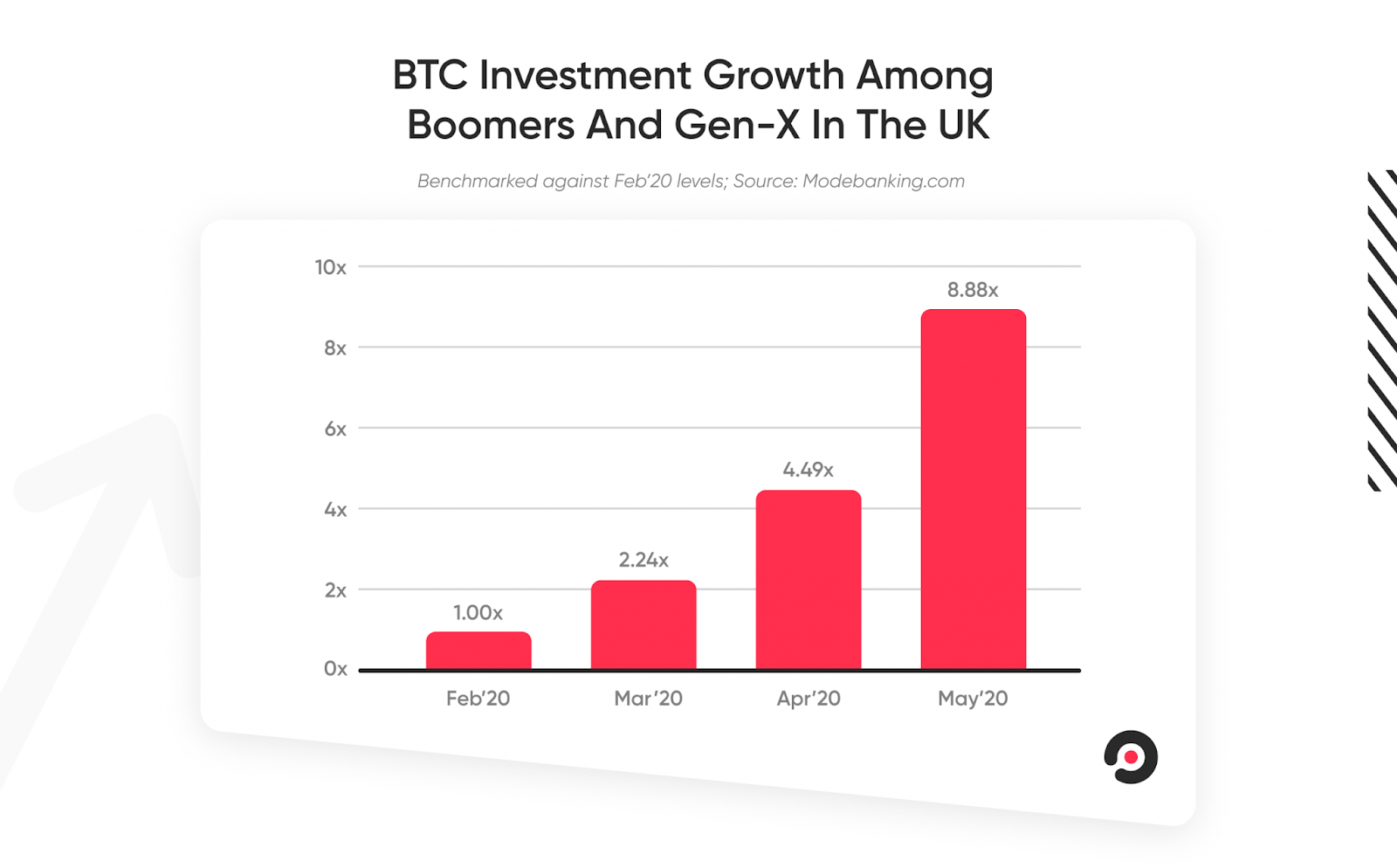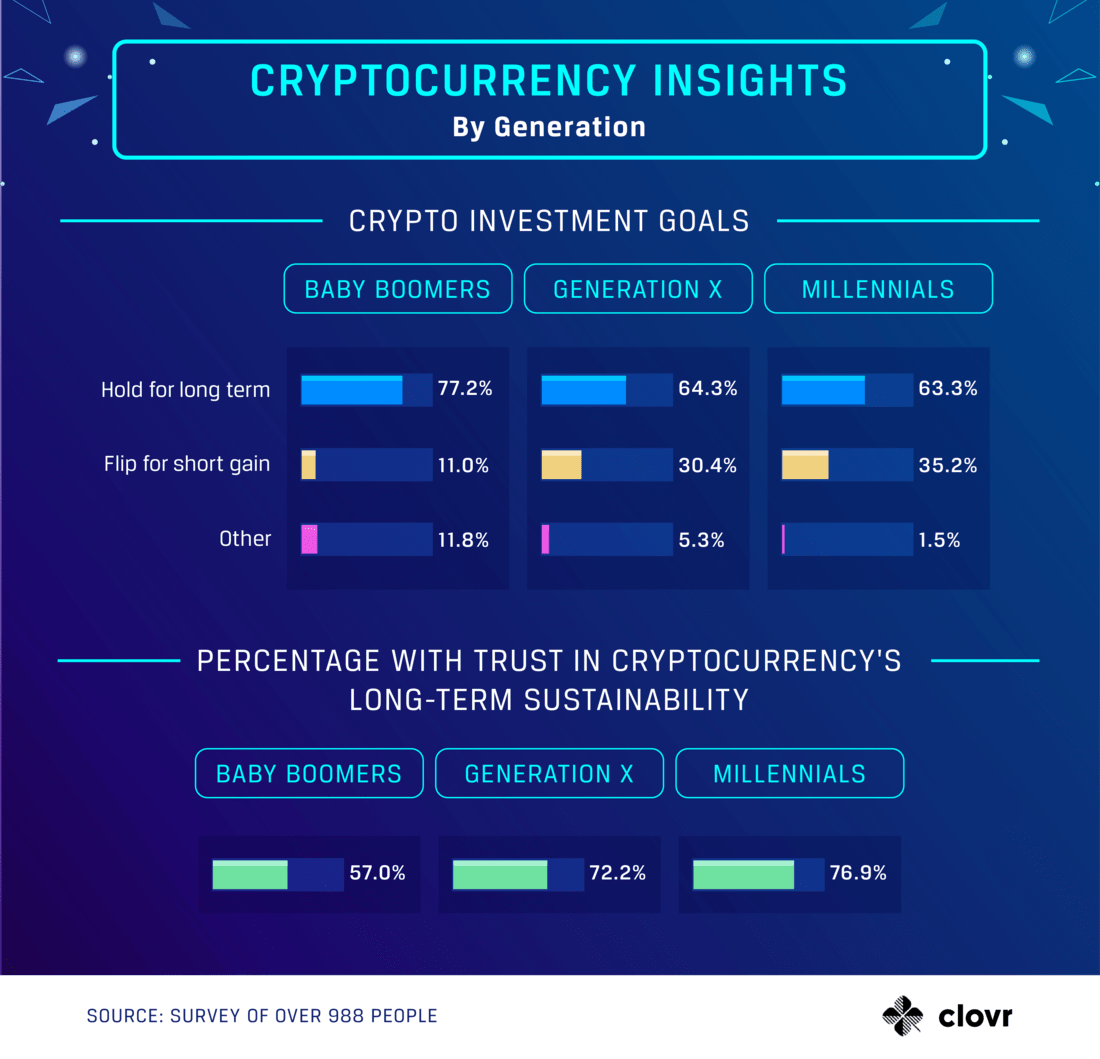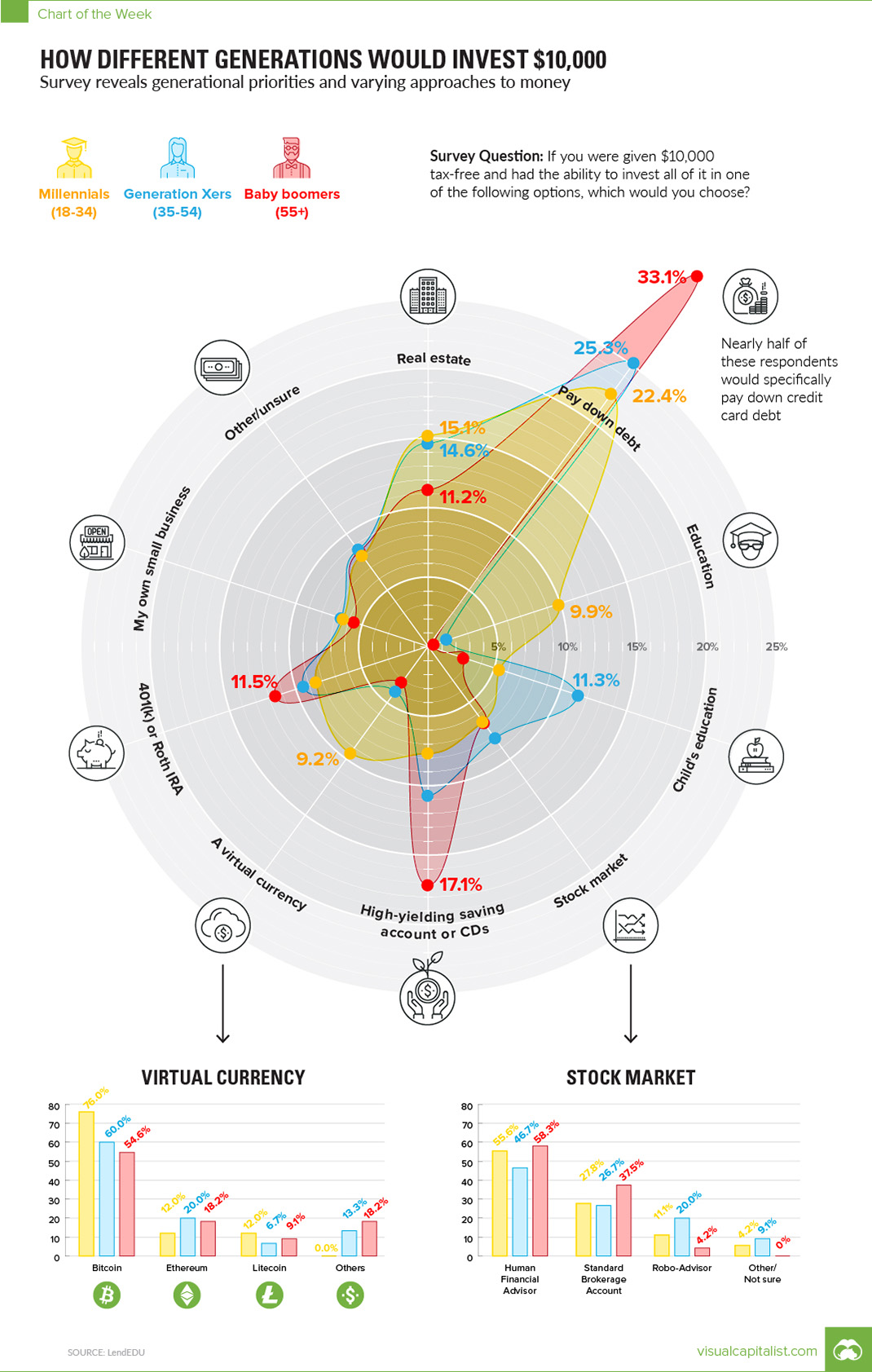
Próspera’s Bitcoin Revolution: A New Financial Era in Honduras
Revolutionizing Finance: Próspera’s Bold Bitcoin Move
In a groundbreaking financial development, Próspera, a special economic zone on Roatan Island in Honduras, has embraced a revolutionary approach by officially adopting Bitcoin (BTC) as its unit of account. This landmark decision, directed by Jorge Colindres, the acting manager and tax commissioner of Próspera, signifies a momentous advancement in the region’s financial landscape.
At the heart of Próspera’s adoption of Bitcoin lies a commitment to financial independence. This initiative allows individuals and businesses within the zone to transact and manage their financial affairs using their preferred currency. This move, however, is not without its challenges. The implementation of the “Final BTC Tax Payment Procedure” is currently facing obstacles due to technological constraints and external regulatory issues.
Global Context: Comparing with El Salvador
Próspera’s strategy echoes El Salvador’s earlier decision to make Bitcoin a legal tender in September 2021. El Salvador’s bold step, despite its difficulties, underscores an emerging trend where regions view cryptocurrencies as a means to foster economic empowerment and innovation.
The Advantages of Cryptocurrency Integration
The Próspera Special Economic Zone in Honduras has made a significant move by officially adopting Bitcoin (BTC) as its unit of account for valuing goods and services. This initiative, led by Jorge Colindres, the manager and tax commissioner of Próspera Zone for Employment and Economic Development (ZEDE), represents a commitment to financial and monetary freedom in the region. It allows businesses and individuals the flexibility to transact and manage finances in their preferred currency.
While this new development enables the use of Bitcoin for internal accounting, there are currently challenges in fully implementing the “Final BTC Tax Payment Procedure” due to technological and external regulatory limitations. Consequently, tax liabilities must still be reported in either US dollars or Honduran lempira until these issues are resolved. Entities wishing to adopt Bitcoin for accounting must notify the Próspera tax commission and reference an approved cryptocurrency exchange, like Coinbase or Kraken, within 30 days of the relevant tax period.
Próspera ZEDE has shown a progressive stance towards cryptocurrencies since its establishment in May 2020, aligning with El Salvador’s earlier decision to declare Bitcoin as legal tender. However, the Central Bank of Honduras does not guarantee cryptocurrency transactions, placing the responsibility and risk on the individuals involved.
The adoption of Bitcoin within Próspera is a notable step in the global cryptocurrency landscape, signaling the zone’s role as a pioneer in this field. This move is observed with great interest worldwide, as it may have significant long-term implications for economic systems and financial freedoms
Future Prospects and Global Implications
As Próspera and El Salvador trailblaze in cryptocurrency adoption, the world watches keenly to understand the long-term effects on their economies and financial systems. Their experiences could be a precursor for other regions contemplating similar approaches, possibly signaling a new chapter in global finance.
The journey of Próspera in adopting Bitcoin, along with its broader implications, reflects an evolving trend towards exploring alternative economic systems and embracing financial freedoms. This bold experiment in the global financial arena may offer valuable insights and lessons for other areas considering comparable pathways.
Open your free digital wallet here to store your cryptocurrencies in a safe place.

Heating Your Home with Bitcoin Mining Rigs: Pros, Cons and Real-Life Cases
Bitcoin mining is the process of using specialized computer hardware to validate transactions on the Bitcoin blockchain and earn rewards in the form of newly minted Bitcoins. This process requires a significant amount of energy and generates a lot of heat as a byproduct. In recent years, some individuals have started using their Bitcoin mining rigs to heat their homes as an alternative to traditional heating methods.
Advantages of using a Bitcoin mining rig for heating
Cost savings
One of the main advantages of using a Bitcoin mining rig for heating is the cost savings. Bitcoin mining can be a profitable endeavor, and the heat generated by the rig can be used to offset the cost of heating the home. Additionally, using a mining rig for heat can also help to reduce the overall carbon footprint of the home, as it eliminates the need for fossil fuels or other non-renewable sources of heat.
Flexibility
Another advantage of using a mining rig for heat is the flexibility it offers. Many mining rigs can be easily moved from room to room or even from house to house, allowing individuals to easily adjust the heating in their home as needed. Additionally, some mining rigs can be controlled remotely, allowing individuals to turn the heat on or off and adjust the temperature from anywhere using a smartphone or computer.
Real-life examples of using a Bitcoin mining rig for heating
Qarnot Computing’s QH-80 heating system
One real-life example of using a Bitcoin mining rig for heating is a company based in the United States called Qarnot Computing. They have created a heating system called “QH-80” that is specifically designed for this purpose, it’s a small, plug-and-play device that can be used to heat a room or small apartment. The device is equipped with several high-performance computing chips that can be used for both mining and heating, with the heat being distributed through a series of built-in radiators. The company claims that the device can heat a room of about 150 square feet for roughly $30 per month, which is significantly less than the cost of traditional heating methods.
Kristoffer Koch’s home in Norway
A third example is a man from Norway named “Kristoffer Koch” who became a millionaire by investing in Bitcoin early on. He invested 150 kroner ($26.60) in 5,000 bitcoins in 2009 and forgot about it. When he rediscovered his investment in 2013, the value of his bitcoins had grown to $886,000, he decided to use a part of his fortune to install a heating system in his house that runs on Bitcoin mining. He claims that it’s cheaper and more environmentally friendly than the traditional heating methods.
Heat4Mine: Bitcoin Mining for Heating in the Netherlands
Heat4Mine is a Dutch company that provides a solution for using the heat generated by Bitcoin mining rigs to heat homes. They have developed a system that captures the heat generated by mining rigs and uses it to heat water, which is then distributed through a building’s heating system. This allows homeowners to offset the cost of heating their home with the profits generated from mining Bitcoin. The company claims that their system is a more sustainable and eco-friendly alternative to traditional heating methods, as it reduces the need for fossil fuels. According to their website, they have been providing this service since 2017.
Disadvantages of using a Bitcoin mining rig for heating
Initial cost of setting up the rig
Despite these advantages, using a Bitcoin mining rig for heating does have some drawbacks. One of the main disadvantages is the initial cost of setting up the rig. Mining rigs can be quite expensive, and the cost may not be worth it for those who only plan to use it for heating. Additionally, the noise and heat generated by the rig can be quite substantial, which may not be suitable for some individuals.
Regular maintenance and reliability issues
Another potential drawback is the fact that the mining rig will require regular maintenance, which can be time-consuming and costly. Additionally, mining rigs are not always reliable and may break down or malfunction, which can be a major inconvenience for those who rely on them for heat.
Conclusion
Despite these drawbacks, using a Bitcoin mining rig for heating is becoming an increasingly popular option for those looking for an alternative to traditional heating methods. As the price of Bitcoin continues to rise, the profitability of mining also increases, making it a more viable option for those looking to offset the cost of heating their home. Additionally, as the world continues to focus on reducing carbon emissions and becoming more energy efficient, using a mining rig for heat may become a more appealing option for those looking to reduce their environmental impact.
It’s important to note that the profitability and cost-effectiveness of using a mining rig for heat will depend on several factors, including the cost of electricity, the current price of Bitcoin, and the efficiency of the rig itself. Additionally, it’s also important to consider the noise and heat generated, and maintenance requirements before making a decision. It’s also important to note that while this is a potential use case, it’s not yet widely adopted or popular. It’s still a niche application of the technology.
In conclusion, using a Bitcoin mining rig for heating can be a cost-effective and energy-efficient alternative to traditional heating methods. It can also help reduce carbon footprint and offer flexibility to adjust heating as per need. However, it’s important to weigh in the initial costs, maintenance requirements, noise and heat generated and the overall profitability before making a decision. As with any technology, it’s important to keep in mind that it may not be suitable for everyone, but for those who it does work for, it can be a great way to save money and reduce their environmental impact.
Open your free digital wallet here to store your cryptocurrencies in a safe place.

Hal Finney’s Family Launches ‘Running Bitcoin Challenge’ to Support ALS Research
The Running Bitcoin Challenge: Honoring Hal Finney’s Memory and Supporting the Fight Against ALS
Hal Finney was a renowned computer scientist and cryptocurrency developer known for his contributions to the development of Bitcoin. In 2008, he received the first-ever Bitcoin transaction from Satoshi Nakamoto, the pseudonymous creator of Bitcoin. Tragically, Finney passed away in 2014 due to complications from Amyotrophic Lateral Sclerosis (ALS), also known as Lou Gehrig’s disease.
A Half Marathon Fundraiser for a Good Cause
In honor of Finney’s legacy, his spouse Fran Finney has organized the Running Bitcoin Challenge, a half marathon fundraiser that takes place between January 1 and January 10 each year. Finney was an avid runner before being diagnosed with ALS in August 2009. Despite a long battle with the disease, he was cryonically preserved in 2014. The Running Bitcoin event serves as a way to honor his memory and raise funds for an important cause. Those who donate at least $100 will receive an official Running Bitcoin T-shirt, and the top 25 fundraisers will receive a rare Hal Finney collectible.
The First Bitcoin Transaction and a Tweet That Changed the World
This timing coincides with the anniversary of Hal Finney’s famous “Running Bitcoin” tweet, in which he announced that he was contributing to the code to the Bitcoin codebase in 2008 and early 2009, and he was the recipient of the first-ever Bitcoin transaction, in which Satoshi Nakamoto sent him 10 BTC. Finney was a pioneer in the field of computer science and a strong advocate for privacy and civil liberties. His work in these areas continues to inspire others to fight for these values.
A Decentralized Event That Can Be Participated in From Anywhere
Participants in the Running Bitcoin Challenge can run, walk, roll, or hike the equivalent of a half marathon (Finney’s favorite distance) either in one go or over the entire 10-day period. There is no set location for the challenge, so participants can join from anywhere they wish. Those who donate at least $100 will receive an official shirt with the half marathon’s logo, and the top 25 fundraisers will receive a Hal Finney collectible signed by his wife. The Running Bitcoin Challenge serves as a way to honor Finney’s memory and raise funds for the important cause of finding a cure for ALS.
The Running Bitcoin Challenge has been a successful fundraiser, raising hundreds of thousands of dollars for ALS research. In addition to supporting research, the challenge also serves as a way for people to honor Finney’s memory and pay tribute to his contributions to the world of cryptocurrency.
Support the Cause and Honor Hal Finney’s Memory
By participating in the Running Bitcoin Challenge and raising funds for ALS research, individuals can help make a difference in the fight against this devastating disease and honor Finney’s memory at the same time. The event is being held in cooperation with the ALS Association Golden West Chapter, which provides equipment loans and educational materials to people living with ALS.
One of the unique aspects of the Running Bitcoin Challenge is that it is a decentralized event, meaning that it can be participated in from anywhere in the world. This makes it accessible to people from all walks of life and allows for a diverse group of participants to come together in support of the cause.
Overall, the Running Bitcoin Challenge is a unique and meaningful way to honor the memory of Hal Finney and support the fight against ALS. It is an opportunity for the cryptocurrency community to come together and make a difference in the world.
Open your free digital wallet here to store your cryptocurrencies in a safe place.

Central Africa Embraces Bitcoin and Cryptocurrency Adoption for Economic and Political Stability
Bitcoin, the world’s first decentralized digital currency, has seen growing adoption in Central Africa in recent years. This trend is driven by a number of factors, including the region’s high inflation rates, political instability, and lack of access to traditional banking services.
One of the main reasons for the adoption of Bitcoin in Central Africa is the high inflation rates that many countries in the region face. Inflation erodes the purchasing power of a currency, making it difficult for people to save and plan for the future. By using Bitcoin, which is not subject to inflation, individuals and businesses in Central Africa can protect their wealth and preserve its value over time.
Political instability is another factor driving the adoption of Bitcoin in Central Africa. Many countries in the region have a history of coups, civil wars, and political unrest, which can lead to the confiscation of assets and bank accounts. By using Bitcoin, which is decentralized and not controlled by any government or institution, individuals and businesses in Central Africa can protect their assets from seizure and avoid the risks associated with political instability.
In addition to high inflation and political instability, many people in Central Africa lack access to traditional banking services. In some rural areas, there are no banks or financial institutions, making it difficult for individuals and businesses to access credit, save money, and make payments. By using Bitcoin, which can be easily accessed and used with a smartphone and internet connection, people in Central Africa can enjoy many of the same benefits of traditional banking without the need for physical infrastructure.
The adoption of Bitcoin in Central Africa is also supported by a growing ecosystem of businesses and services that accept the cryptocurrency. This includes merchants who accept Bitcoin for goods and services, as well as exchanges and wallet providers that facilitate the buying and selling of Bitcoin. This ecosystem is helping to drive the adoption of Bitcoin and is making it easier for people in Central Africa to use the cryptocurrency in their daily lives.
In addition to the factors mentioned above, there are several other reasons why Bitcoin is gaining popularity in Central Africa. The increasing use of mobile phones and internet access in the region has made it easier for people to use Bitcoin and other digital currencies. The growing awareness of the benefits of Bitcoin, such as its decentralized nature, low transaction fees, and fast transaction times, has also contributed to its increasing popularity in the region. The growing adoption of Bitcoin in other parts of the world has also played a role in its acceptance in Central Africa.
Furthermore, the Central African Republic has recently unveiled its own cryptocurrency, Sango Coin, which will be the second cryptocurrency, after Bitcoin, to be recognized as legal tender in the country. The President of the Central African Republic has voiced support for blockchain, cryptocurrencies, and Bitcoin, further demonstrating the increasing interest and involvement in the cryptocurrency space in the region.
Overall, the adoption of Bitcoin in Central Africa is driven by a combination of economic, political, and technological factors. As the ecosystem of businesses and services that accept Bitcoin continues to grow, it is likely that the adoption of the cryptocurrency will continue to increase in Central Africa.
Open your free digital wallet here to store your cryptocurrencies in a safe place.
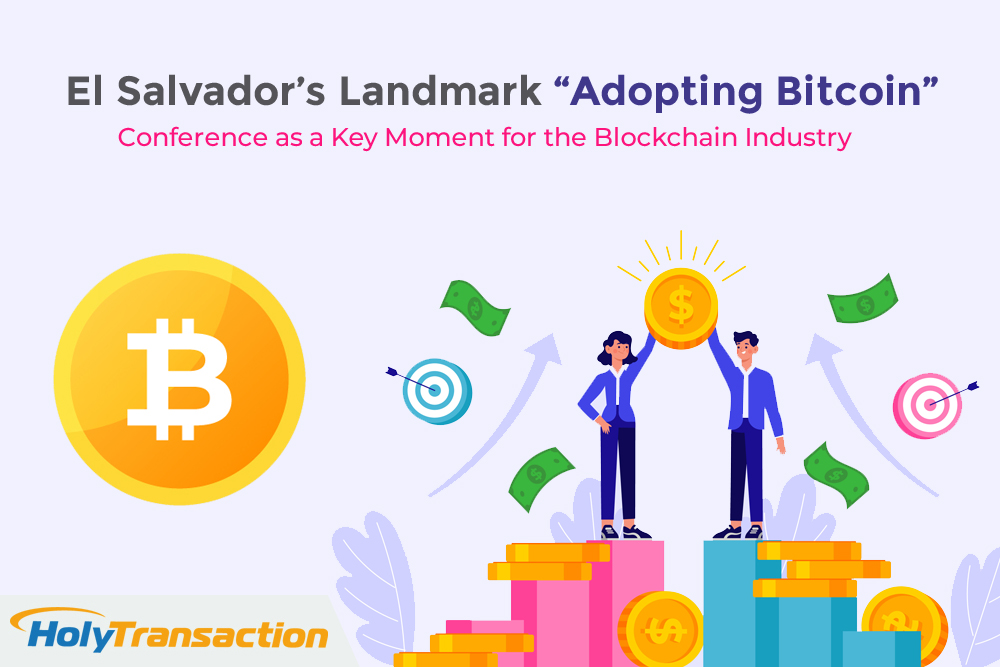
El Salvador’s “Adopting Bitcoin” Conference as a Key Moment for the Bitcoin Industry
Emerging at the forefront of Bitcoin innovation, El Salvador is working toward achieving a level of financial independence and openness independent from a centralised banking system. El Salvador has paved the way for other nations to follow in its footsteps by becoming the first nation in the world to recognise Bitcoin as a legitimate currency.
To encourage worldwide collaboration and proliferate networking avenues for Bitcoin enthusiasts, El Salvador hosted the “Adopting Bitcoin” Conference over 3 days, between November 15 and 17. The event took place in San Salvador and at Bitcoin Beach and brought together members of the Bitcoin ecosystem from a multitude of states.
Uncovering the Objectives of the “Adopting Bitcoin” Conference
More than 110 speakers from over 30 countries discussed the most recent breakthroughs throughout the whole range of Bitcoin-related disciplines, including those pertaining to technology as well as economics.
In this setting, the presentation of the Bitcoin core engineer Jon Atack was a significant highlight, focused on technology and development, while the presentation of Mexican senator Indira Kempis will be the most famous name in the track focused on economics. The multi-stage event will be held in English, with Spanish translations provided in real-time for the most critical phases.
Bitfinex Pledges to Support El Salvador in Future Bitcoin Ventures
Paolo Ardoino, the Chief Technical Officer of Bitfinex, is one of the attendees at the crypto conference in El Salvador who gained the greatest notoriety. Arduino said in his statement that his company “would redouble its efforts to establish a free, unstoppable, robust, and open Bitcoin and technological infrastructure for El Salvador.”
Overall, Bitfinex has committed to working closely with the government of El Salvador, which is currently mired in debt and is governed by President Nayib Bukele, to devise an appropriate regulatory framework for the cryptocurrency market and other digital assets in the nation. Ifinex, the parent company of Bitfinex, has agreed with the government of El Salvador to work together on developing a regulatory framework for digital assets and securities.
Adverse Circumstances are Met with Further Commitments by Bitcoin Supporters
While adverse market dynamics hindered the optimism around the event, there is a suite of conclusions that indicate the ongoing commitment of Bitcoin leaders and pioneering nations like El Salvador to still pursue the broader adoption of Bitcoin as a payment medium.
As the blockchain industry, as well as all the other financial sectors, witnessed in 2022, the price of Bitcoin and other cryptocurrencies declined primarily due to the Federal Reserve’s strategy of dramatically raising interest rates to curb rising inflation in the United States, which caused the cost of money to increase. Subsequently, the remainder of the decline was caused by a succession of events, including the bankruptcy of organisations involved in cryptocurrency trading and the collapse of currencies such as Terra USD. Large investors sold out these high-risk assets, precipitating a precipitous value decline.
“One Bitcoin Per Day” Plan Proposed by El Salvador’s President
El Salvador’s President, Nayib Bukele, announced that the nation would begin buying one Bitcoin each day starting with November 17, 2022. The use of dollar-cost-averaging (DCA) in Bitcoin transactions is widespread among the community, yet it is unprecedented for a nation-state. When Bukele’s proclamation was made, the nation possessed a Bitcoin treasury that included 2,381 BTC and had a worth of more than $39 million.
So far, Bukele has made it a pattern in the past to acquire a significant quantity of Bitcoin during periods of market instability and to “buy the dip.” This action would signal the end of a nearly five-month pause amid severe bear market circumstances and the collapse of Sam Bankman-massive Fried’s $32 billion FTX enterprise.
According to NayibTracker, Bukele made his most recent purchase of Bitcoin on June 30, 2022. At that time, he paid $1.52 million for 80 Bitcoins (worth around $1.33 million), which works out to an average price of $19,000 per coin.
Bottom Line
Overall, El Salvador’s “Adopting Bitcoin” conference serves as a reminder of the ongoing commitment of crypto pioneers and their belief in the long-term potential of this cutting-edge technological revolution.
Open your free digital wallet here to store your cryptocurrencies in a safe place.
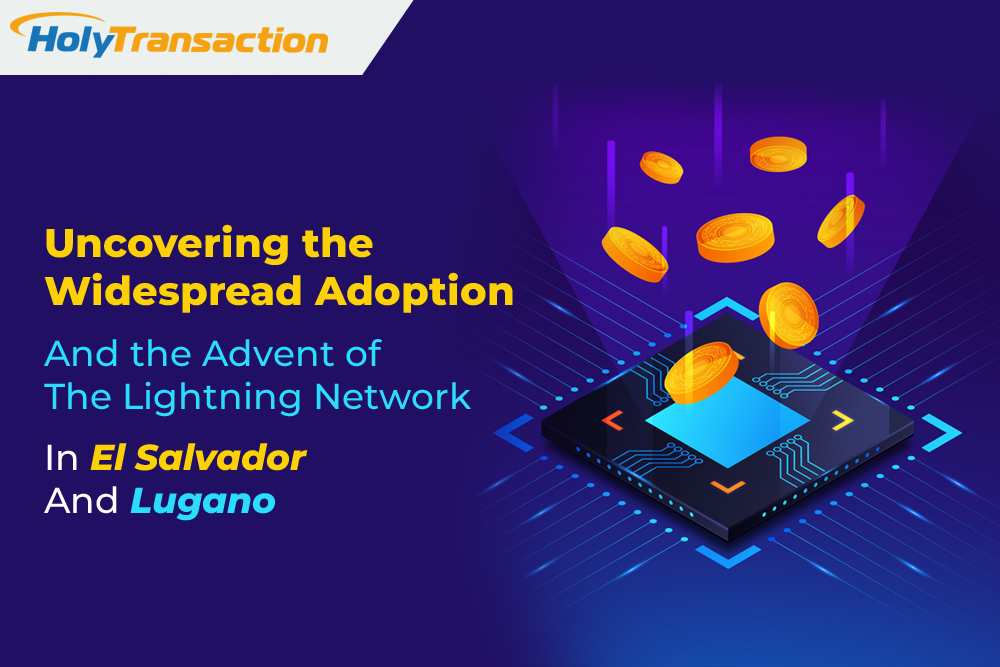
Uncovering the Widespread Adoption and the Advent of the Lightning Network in El Salvador and Lugano
Acknowledging the unprecedented potential of Bitcoin’s Lightning Network, El Salvador and Lugano are two of the most significant adopters of this remarkable technological breakthrough.
El Salvador & Lugano Propel the Bitcoin Adoption
As a cornerstone moment for the Bitcoin economy, a memorandum of understanding (MOU) was signed on 28 October 2022 between the nation of El Salvador and the city of Lugano in Switzerland. Moving forward, the goal of the MOU is to increase the use of Bitcoin not only in their respective areas but also in the states and nations that are nearby.
Overall, the anticipated aims of the partnership include bolstering cooperation in education and research for both El Salvador and Lugano, assisting initiatives to promote the adoption of Bitcoin and other digital tokens in their respective regions, and encouraging the exchange of students and talent between the two countries.
Exploring the Innovation Brought by the Lightning Network
So far, the scalability of the Blockchain has been a significant barrier to the widespread acceptance of cryptocurrencies from their inception. The Lightning Network’s second layer introduces a cutting-edge solution to this matter, as it intervenes by processing transactions outside the first-layer blockchain mainnet while retaining the mainnet’s robust decentralized security model. By bypassing the official Bitcoin blockchain, the Lightning Network can grow Bitcoin transactions per second (TPS), charge reduced fees, and allow new use cases like micropayments.
In addition, the Lightning Network has the potential to bring financial inclusion and freedom to the developing nations involved, in part because it is a trusted and private network that does not require the participation of third parties or intermediaries. Moreover, it could also lessen the likelihood of governments enacting policies restricting the free flow of capital. It also helps people who do not have access to bank accounts by facilitating transactions in a manner that is almost instantaneous and free of charge, thereby making Bitcoin usable not only as a means of payment but also as a means of exchange.
How Lugano is Leading Crypto Adoption in Europe
Lugano appears to have the same goal as El Salvador: to have all local businesses routinely accept cryptocurrencies as a form of payment. However, Lugano does not appear to have the same goal as El Salvador of making Bitcoin or any other cryptocurrency legal tender. Although Lugano does not hold such a position in Switzerland, the city of 70,000 people did launch its Plan B programme approximately seven months ago to increase the use of Bitcoin.
In March of 2022, Lugano announced that it would be implementing the Plan ₿ Initiative. Additionally, the technology company Polygon joined as a critical infrastructure partner. Plan ₿ Foundation, a partnership between the City of Lugano and Tether, the technology company behind the public blockchain that supports the largest stablecoin by market capitalization (USDT), has been announced today. This partnership will allow Bitcoin, Tether, and LVGA payments to be accepted in the city of Lugano.
Tether and the city of Lugano have collaborated to create a Plan ₿ aiming to increase the use of Bitcoin and stablecoins throughout the city. This, in turn, is expected to have a beneficial effect on all aspects of inhabitants’ everyday lives. As a result, the city’s financial system will be revolutionized faster than ever, thanks to the widespread use of Bitcoin.
El Salvador – the Pioneering Nation in the Cryptocurrency
In 2021, El Salvador was the first country to acknowledge Bitcoin as a legal tender. Through this avenue, El Salvador became a pioneer in demonstrating how technologies such as Bitcoin, decentralized ledgers, and peer-to-peer networks can accelerate financial literacy and inclusion
Furthermore, Latin America appears to follow El Salvador’s lead and powering Bitcoin mining farms with natural resources (such as energy generated by geothermal activity). Countries of Costa Rica in Central America and Paraguay in South America are also heading in this direction.
Bottom Line
Since most people in Europe are not yet familiar with this idea, a closer relationship between El Salvador and a nation located in Europe could usher in uncharted territory.
Open your free digital wallet here to store your cryptocurrencies in a safe place.

Generation X vs. Generation Y | Adopting Cryptocurrencies
Generation X and Generation Y Adoption of Cryptocurrencies: A Comparison
The world’s financial institutions are currently observing a vast digital ecosystem being expanded with reports for new digital currencies akin to the likes of cryptocurrencies to be launched soon. While these CBDCs (central bank digital currencies) are proclaimed not to harm or replace cash and other forms of legal tenders, we cannot help but talk about the ones instigating the change.
Cryptocurrency became popular since the launch of Bitcoin back in Jan 3rd, 2009. Ever since then, cryptocurrencies have seen a rise in popularity amongst the masses.
According to a recent study by Tech Jury, the cryptocurrency market cap has reached $265.545 billion as of May 2020. By 2023, the global blockchain market is expected to reach $23.3 billion. Furthermore, Bitcoin alone accounts for $6 billion of daily online transactions.
Moreover, cryptocurrency users have exceeded 40 million globally. In light, of this information, let’s take a quick look at how Millennials compare to Generation X when it comes to adopting cryptocurrencies.
Generation X
Generation X is widely regarded as the generation that followed Baby Boomers and preceded Millennials. Their age groups range from 40 to 55 years old as of 2020. Here is how Generation X is reacting towards cryptocurrency:
-
Investment Growth among Boomers & Gen X
While Millennials are regarded as the prime suspects for capitalizing on the crypto market, surprisingly both Baby Boomers and Gen X are being currently observed to closely follow the trends.
Hence in recent years, many sources have cited an increase in investment of cryptocurrency as both Boomers and Generation X take charge to close the gap. In some cases, they were also found to have more than doubled their investments.
-
Month on Month Growth
It seems like the word of mouth and awareness about cryptocurrency is spreading like wildfire as Generation X is seen to understand the value and find blockchain as a reliable security measure. Understanding the benefits of fast and instantaneous transactions, the group of disaffected people and entrepreneurs is already showing signs of crypto is affecting their thinking for the future.
Reports are coming in, showing an evident increase and Month on Month growth patterns. According to a study by Mode Banking, both Baby Boomers and Gen-X have shown a trend of increasing their investment in cryptocurrency by over 100%, especially during the COVID-19 pandemic.
-
Wealth Protection & Asset Diversification
With the current economy ridiculed by the pandemic, the growing fear for wealth protection has led Baby Boomers and those belonging from Gen-X to invest in resources that can allow for asset diversification. Cryptocurrency so far has been observed as the most favorable type of investment to safeguard personal wealth.
Generation Y
Otherwise known as Millennials, Generation Y is widely regarded as the generation succeeding Gen-X and Baby Boomers. Their age groups range from 24 to 39 years of age. Often regarded as the parents of Generation Alpha (like my darling son!) they were born into a world that as quickly becoming familiarized with the internet, mobile devices, and social media.
-
Growth of Alternative Asset
Millennials view of cryptocurrency is that of an alternative asset. Surprisingly not many of us want to invest in stocks and are more interested in assets that are backed by technologies. According to a recent study by Coin Telegraph, Millennials are three times more likely to invest in cryptocurrency as compared to Generation X. Furthermore, 9% of Millennials chose crypto as their long-term investment option.
Students applying for and seeking dissertation assistance are also looking for ways to invest alternative asset that can help secure their personal wealth for the future. It is important to note here that while both real estate and stocks are also good options for Millennials, they are currently dominated by Baby Boomers in the present times.
-
Shifting Presence for Everything Digital
Studies from different financial institutions and digital currency markets are coming in showcasing Millennials as a driving force for the adoption of Bitcoin for years to come. Zac Prince, the CEO and founder of BlockFi, identifies a major trend for Millennials where they seek everything digital.
Furthermore, with Bitcoin reaching its all-time high and pushing over $23,000 per coin as of Dec 17, 2020, who can blame Millennials for making the right choice so far!
-
Wealth Transfer to the Young
There is a Japanese idiom that states the next generation as the actual king of the world. Come to think of it this world will always belong to the next generation that is how our life expectancy is all about. We may get to live 100 years, but eventually, the circle of life catches up to us. As we depart, the new generation takes to the throne.
For countless eras, this is how wealth has been passed down from old to the young. Currently, Millennials are in the process to take control and eventually move Boomers out to take their seat on the ruling chair. This transfer of power and wealth on a massive scale will indefinitely cause investment in cryptocurrency to rise by a tremendous rate.
Conclusion
Cryptocurrency is on the rise with Bitcoin riding the tidal wave in recent times. Not only digital assets and crypto are skyrocketing, but even the BIS (Bank of International Settlements) is also considering launching digital currencies with the help of IMF and 60 central bank members.
Someone really has to be blind enough to not see how things are rapidly changing and converging towards digital resilience. So far Millennials and Gen-X have shown their growing interest in adopting cryptocurrencies with Boomers lagging behind to catch up on the trend.
Author Bio
 Samantha Kaylee currently works as an Assistant Editor at Crowd Writer. This is where higher education students can acquire literature review writing service UK from professionals specializing in their field of study. During her free time, she likes to catch up on all the latest tech developments happening across the globe.
Samantha Kaylee currently works as an Assistant Editor at Crowd Writer. This is where higher education students can acquire literature review writing service UK from professionals specializing in their field of study. During her free time, she likes to catch up on all the latest tech developments happening across the globe.
Open your free digital wallet here to store your cryptocurrencies in a safe place.

How Cryptocurrency is Paving the Future for Hedge Funds
We all know how cryptocurrency rose to power and the impact it’s having on the world, but now it’s confirming its place as a form of finance that is used and accepted around the world, it’s time to look to the future, in particular, hedge funds.
Have you ever thought about how cryptocurrencies are effective hedge funds, and how many believe that cryptocurrencies are, in fact, the future of hedge funds? Well, the future is now. Crypto hedge funds are already popping up here and there, and while 150 exist at the time of writing, there are many more on their way.
In fact, many believe that this number could double, if not triple, over the coming year. While it’s clear the venture capital industry is changing as we know it, today we’re going to share what we already know, and what we can expect in the coming years.
It’s Far from Ready
By many estimates, there are over 15,000 hedge funds around the world, 150 cryptocurrency hedge funds don’t seem like a lot. Even if you triple this number to 450, that still such a small percentage of the total hedge funds count, so why is this such a big deal?
The truth is, the industry is still growing and finding its feet, which means once it’s able to stand up for itself, so to speak, then it will really start to take up. At the moment, it’s still in its crawling days.
Rough estimates state that the hedge fund industry is worth around $3 trillion, whereas the amount of money going to cryptocurrencies is only around $3 billion. I know these are still huge sums of money, but on the grand scale of things, it’s tiny. However, this is predicted to change over the next 12 months.
This is because cryptocurrency values and estimates are still way too high, and many cryptocurrencies are way too volatile, which means investors are being cautious around them. Additionally, with so much competition in the industry, it’s hard for investors to know what to focus on, and what investment opportunities are worth the risk.
Many people still see investing in cryptocurrency as gambling, and it’s true, there’s still a huge factor in investing it. However, if the rate of integration of cryptocurrency into the mainstream continues as well as it is already, this shouldn’t continue to be a problem over the next few years.
When you consider that the top 35 cryptocurrencies are valued at over $1 billion, so it’s not going to be ignored any time soon.
Technology is Evolving
Of course, blockchain technology is responsible for making cryptocurrency work in the way it does, but it’s important to note that this technology is still evolving. There’s no denying that the technologies and services are still being invested in, but it’s a long way off being where it needs to be, although this is changing rapidly, and the hedge funds markets are reflecting this.
The more success that comes from the technology, the more it will be developed, and the more funds it will have invested in it, and therefore the faster it will evolve. This will be represented by a rapidly spiking curve over time and will happen fast.
The Tides are Changing
Look at the market, and what do you see? There’s no denying that cryptocurrency is the way that the market is going to go. After all, millennials are already ‘unbanking’ and moving their money in cryptocurrency deposits, rather than traditional banking systems and networks.
Traditional banking systems are noticing this and now, of course, have to consider cryptocurrencies in their banking strategies, and will continue to do so over the coming years. From an investor’s point of view, it’s important to start looking at these strategies and at how cryptocurrencies can be incorporated into their investment strategies.
If you don’t already have a cryptocurrency investment strategy existing, this is something you need to think about because you’re going to be left behind.
Although investors with cryptocurrency strategies are already ahead of the curve, the tides are changing fast, and you don’t want to be left behind and without a strategy when cryptocurrencies play such an integral role in the markets.

Michael Dehoyos is an economic consultant and editor at Coursework Writing Services. He assists companies in their marketing strategy concepts, and contributes to numerous sites and publications, as well as offering investment advice.
Open your free digital wallet here to store your cryptocurrencies in a safe place.

Bitcoin officially recognized in Japan
The open-minded Japan
Multicurrencies Wallet

Open your free digital wallet here to store your cryptocurrencies in a safe place.

15 Oddest Places where Bitcoin is accepted
Recently we read about the news about Overstock, for example. Also, you will find out there are several other shops where you can buy your favorite items with Bitcoin.
- CVS – pharmacy shop
- Victoria’s Secret – Lingerie Shop
- BitcoinTravel – marketplace that provides accommodation, apartments and more
- Pembury Tavern – Pub in London
- Old Fitzroy – Pub in Sydney
- The Pink Cow – Restaurant in Tokyo
- Zynga – Mobile gaming
- OkCupid – Online dating site
- EZTV – Torrents TV shows provider
- PizzaForCoins.com – pay for your pizza
- Whole Foods – Organic food store
- Bitcoincoffee.com – Buy your favorite coffee online
- A Class Limousine – Newark (N.J.) Airport
- Fiverr.com – Freelance jobs for $5
- Seoclerks.com – SEO work
Multicurrencies Wallet
Open your free digital wallet here to store your cryptocurrencies in a safe place.

